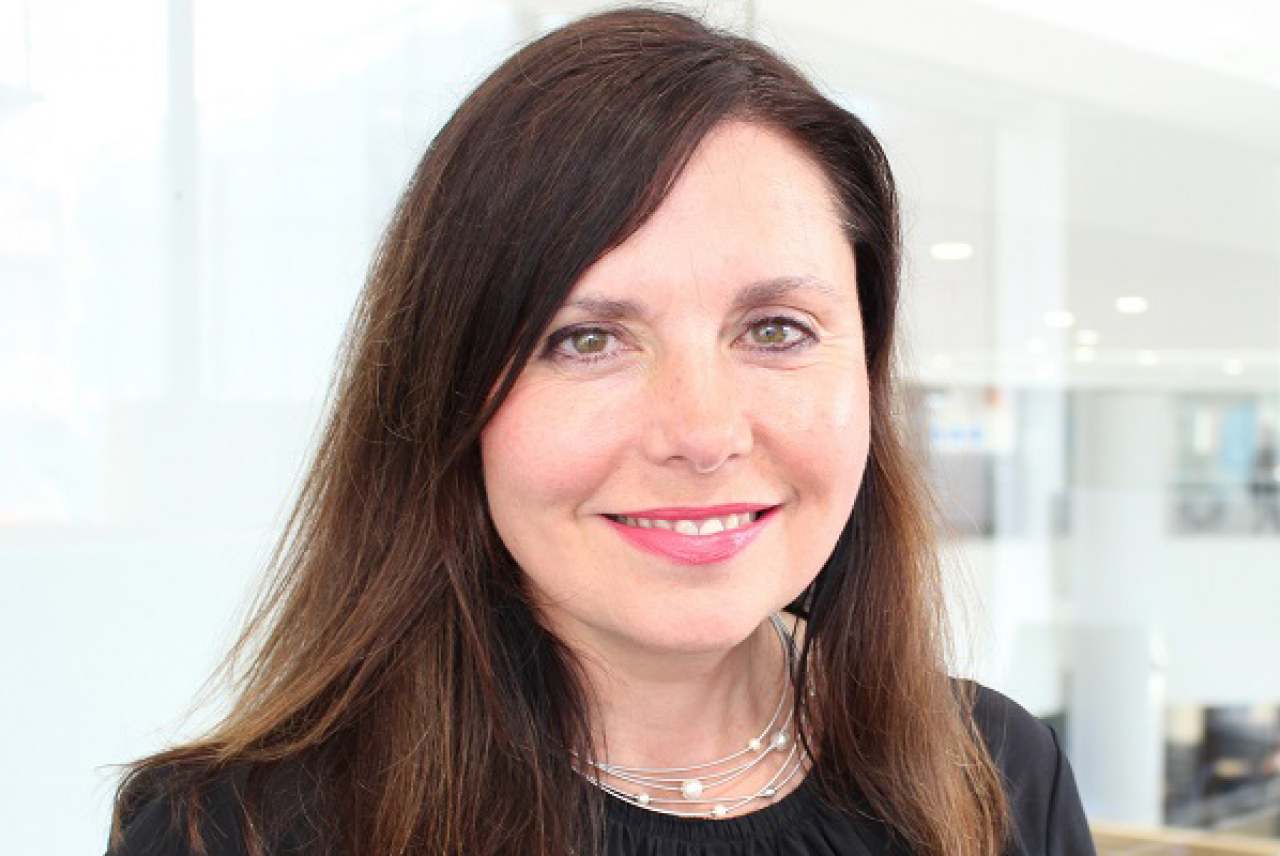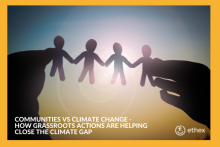The Co-operative Bank has championed its customer-led Ethical Policy since 1992, singling it out from other high street banks when it comes to values and ethics.
Over the last decade, its ethical commitments have ensured it has consistently been a ‘Recommended Buy’ in our current and savings accounts guides.
Lesley McPherson, Director of Communications and Marketing, will be joining us during Ethical Consumer Week 2020 to speak about the Co-operative Bank’s policy against fossil fuel funding, and why they take a radically different stance to other high-street banks.
Here, she tells us about the coronavirus pandemic, the bank’s approach, and why it has chosen to listen to customer voices in shaping its values and ethics.
The Co-operative Bank is well known for its values and ethics. What do these mean to you?
I’ve worked at The Co-operative Bank for over four years, and our values and ethics are fundamental to the way that we do business here. I’m very proud to be part of a bank that’s prepared to turn away business from organisations that don’t align with our customers’ expectations. In my time here I’ve seen incredible loyalty from our customers because they do feel listened to and they know that their views are important to us.
I think our co-operative values and ethics are more important now that they have ever been, given our ever-changing world. Since our Ethical Policy was first launched in 1992, through regular consultation with our customers, it has grown from focusing exclusively on who we would and wouldn’t provide banking services to, to also looking at our products and services, our business practices, our workplace and culture and campaigning. It has even been incorporated into our Articles of Association, officially recognising it as a central part out our business.
We will continue to look forward, to ensure our ethical focus reflects the views of our customers, and we’ll carry on identifying under-served emerging issues so we can use our influence to tackle them as they arise. For example, in the past few weeks we’ve launched our Know Economic Abuse campaign in partnership with domestic abuse charity Refuge, to highlight the often unrecognised but devastating issue of economic abuse in relationships.
Over the years, the bank has faced some challenging questions. Do you feel confident that the bank is now well placed financially?
The issues The Co-operative Bank has faced over the past few years have been well documented. What hasn’t changed is that we remain as committed to the values and ethics of the co-operative movement as we have always been.
The economic impact of the global pandemic means that we’re still operating in challenging times, but the Bank is in a resilient position. We’re confident that our ethical approach to banking and our strong brand will continue to differentiate us in the market and fulfil the needs of consumers looking for an ethical alternative.
How have you dealt with the challenges of the current pandemic? And has it shaped your ethical approach?
COVID-19 continues to bring challenges for many of our customers and they continue to be our main focus. Our branches and contact centres remained open for our customers, we were the first to market to provide £500 interest free overdrafts for retail customers and we are part of the government CBILS and Bounce Bank Loans schemes, allowing us to provide support to small business customers who are key to our communities.
I feel that our response to the pandemic has actually brought us closer together, closer to our communities and closer to our values and ethics.
We’ve also been very conscious of the impact of the pandemic on our charity partners and the people they help. Young people have been particularly impacted by job losses due to the pandemic, which in turn has an impact on the services provided by Centrepoint, who work with 16 to 24 year olds who are homeless or at risk of homelessness. Our colleague’s support for Centrepoint’s recent Stay Up fundraising event raised over £28,000 for this amazing charity, which we boosted to contribute to a total of nearly £50,000.
During Ethical Consumer Week, you’ll be speaking about the Co-operative Bank’s zero tolerance policy on the funding of fossil fuel production and extraction. Can you talk a bit about the Bank’s approach
The Co-operative Bank has declined finance for the extraction and production of fossil fuels since 1998. The role of finance is essential to addressing the climate emergency, and while I recognise that progress has been made in recent years, banks and financial institutions continue to fund the extraction of fossil fuels on a massive scale. It’s become apparent that the only way fossil fuel companies will ever be persuaded to stop these activities is by cutting off their access to finance. And time is running out.
Despite this, there is still not enough investment in renewables. It’s for all of us, governments and businesses as well as individual consumers, to take action to address the climate emergency and we’re proud to be supporting this globally by joining the United Nations Environment Programme’s Finance Initiative, which sees the United Nations working with banks, insurers, and investors across the world to create a sustainable finance sector.
What are the bank’s future aspirations in terms of building on its ethical standards?
As always, we’ll be guided by our customers. We’re hearing more expressions of concern about the potential environmental impact of deep sea mining operations and our customers continue to write to us with concerns around nuclear weapons, as well as other social and environmental issues.
Over the past year, you’ve worked closely with the Customer Union for Ethical Banking. Why do you feel that it’s important to engage with customers around ethics?
We are proud of our history and roots in the co-operative movement and engaging with customers, listening to them and working with them on issues that matter to them are all part of that co-operative ethos. We welcome customer feedback on how we’re doing and what we could do better.
The Customer Union is a group of customers who care passionately about the Bank and in particular our Ethical Policy. The group operates independently as a co-operative and members pay a small subscription every year. We’ve had regular meetings with the Customer Union since 2016 and at the end of last year showed our commitment to ongoing engagement with them through a formal Recognition Agreement.
We are delighted that the Customer Union want to support us in making a difference through our ethical position. At a time when more people are seeking greener choices, our Bank provides a way for consumers to say no to fossil fuels, and make a difference to communities, tackling the issues that are important to our customers.
Why did you decide to support Ethical Consumer Week?
This unique online conference is an opportunity to engage with like-minded consumers, campaigners and businesses to share learnings.
Since we launched our Ethical Policy, shortly after Ethical Consumer itself was founded, Ethical Consumer has played a key role in raising awareness, campaigning and spreading the knowledge and understanding of important issues. We value our Ethical Consumer listing as a ‘recommended buy’.
What are you most excited about for the week?
It’s great to see how Ethical Consumer Week has been able to adapt from a traditional conference to an online event this year, demonstrating that resilience which will help us all to move on from the pandemic in a positive way.
I’ve been really inspired by the Ethical Consumer Week programme, which is incredibly future-focussed. The programme recognises the need to engage young people and to give them the tools and the motivation to be part of the solution, which I think is so important. My team and I are looking forward to joining as many sessions as we can and spending some time in the café sessions, engaging with fellow attendees throughout the week.
Lesley will be speaking about their approach during ‘How banks fund climate crisis’, Monday 26th October, 7-8:30pm.






